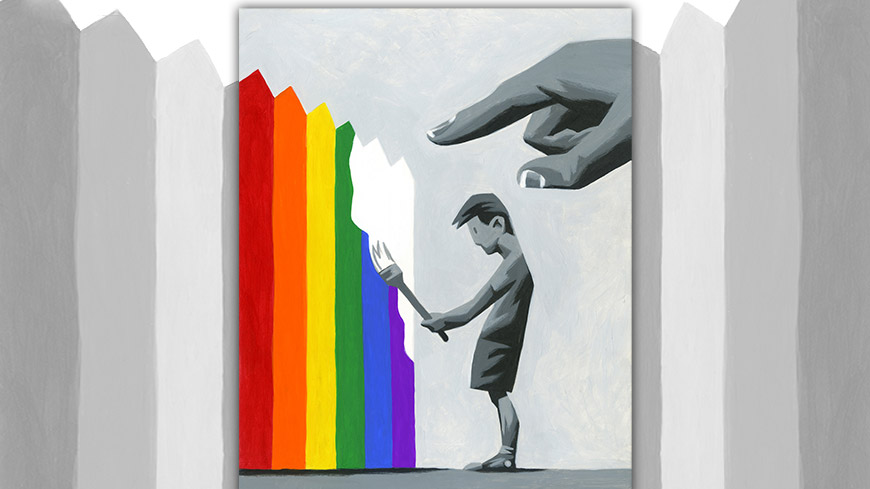Council of Europe: Nothing to cure - stop 'conversion therapies' for LGBTI+ people

SOGIE conversion practices (also known as 'conversion therapies') aim to change or suppress a person's sexual orientation, gender identity or expression when they do not conform to the perceived dominant norm. In Europe and around the world, even today, there are commercial enterprises and religious communities that carry out these practices, which commonly take place through the following methods: psychotherapy, medical interventions, faith-based interventions.
All this is dangerous and has no place in a society based on human rights.
In fact, the World Health Organisation (WHO) has declassified homosexuality as a pathology or disease since 1990, and psychologists' associations worldwide declare that there is nothing to cure.
International human rights standards send a clear message: there is no place for SOGIE conversion practices.
The European Commission's current LGBTIQ Equality Strategy 2020-2025, for instance, classifies such practices as harmful to the physical and mental health of LGBTIQ people. At the Council of Europe, such practices have been criticised by several bodies, including the Parliamentary Assembly and the Congress of Local and Regional Authorities.
These acts are in clear conflict with Article 8 of the ECHR, which enshrines the right to respect for private and family life. The UN Committee on Economic, Social and Cultural Rights also found that SOGIE conversion practices violate LGBTI people's right to sexual and reproductive health. Importantly, since these practices treat people differently on the basis of characteristics such as sexual orientation or gender identity, and have no objective and reasonable justification, they hardly appear to be compatible with the prohibition of discrimination enshrined in Article 14 ECHR and Article 1 of Protocol No. 12 to the ECHR.
Recent reports suggest that some companies practising SOGIE conversion therapies have taken advantage of legislative discrepancies and relocated to where such practices are still legal.
The prevalence of SOGIE conversion practices in Europe is unknown, as they often take place under conditions of secrecy. It is estimated that 2 percent of LGBTI people in the EU have undergone such practices and 5 per cent have been offered them, although the actual figures could be much higher. According to the most recent data available in the UK, around one fifth of LGBTI people have undergone SOGIE conversion practices.
The effects of these practices can be devastating. People who undergo them can suffer significant psychological damage, including depression and anxiety, shame or self-hatred, suicidal thoughts or suicide attempts, post-traumatic stress disorder, as well as physical health consequences, such as stomach ulcers, sexual and eating disorders and migraines. The interventions themselves can also cause permanent physical damage.
In order for these practices to be eradicated, a thorough analysis of the individuals who engage in them today and legal bans at various levels are needed to ensure that those responsible can be held accountable.
In addition to banning SOGIE conversion practices, it is also necessary for states to offer psychosocial support and rehabilitation measures to those who have fallen victim to them
Different sexual orientations and gender identities or expressions should not be repressed or changed. It is, therefore, necessary for the member states of the Council of Europe to take decisive measures to eliminate SOGIE conversion practices. Society as a whole must strive for a world free of discrimination and prejudice against LGBTI people, so that conversion practices are finally recognised for what they are: a harmful fraud.

